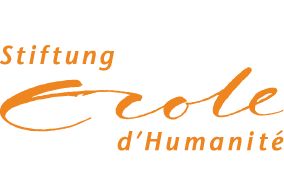Creative expression has always been at the heart of learning at the Ecole d’Humanité. Whether in the woodshop, the theatre, or the mountains, we encourage students to explore the world through their own eyes and voices. Now, as the tools of creative expression evolve, we believe it is essential to offer students access to the digital mediums shaping how people communicate, collaborate, and make meaning in the 21st century.
We are seeking support to develop a dedicated digital arts programme and creative media space that will enable students to engage deeply with photography, filmmaking, digital drawing, animation, audio production, and visual storytelling. These tools do not replace traditional forms of art, they expand them, giving students new ways to reflect on their world and share their perspectives with others.
Why This Matters
Access to modern creative tools: Students deserve the opportunity to learn the digital skills that are now essential across fields, from design and media to science and activism.
Expression and identity: Digital arts offer inclusive ways for students to express their thoughts, identities, and lived experiences, particularly for those who may not connect as strongly to traditional fine arts.
Storytelling with nature: At the Ecole, our environment is part of our pedagogy. With video and photography, students can document their mountain journeys, science expeditions, theatre productions, and quiet moments in nature, transforming experience into narrative.
Interdisciplinary potential: Digital arts connect easily to other domains, supporting academic research through video essays, science through data visualisation, and history through documentary.
Portfolio and career development: Students who experiment with digital media can begin building portfolios that support future studies in arts, communications, film, architecture, or marketing.
We are seeking support to develop a dedicated digital arts programme and creative media space that will enable students to engage deeply with photography, filmmaking, digital drawing, animation, audio production, and visual storytelling. These tools do not replace traditional forms of art, they expand them, giving students new ways to reflect on their world and share their perspectives with others.
Why This Matters
Access to modern creative tools: Students deserve the opportunity to learn the digital skills that are now essential across fields, from design and media to science and activism.
Expression and identity: Digital arts offer inclusive ways for students to express their thoughts, identities, and lived experiences, particularly for those who may not connect as strongly to traditional fine arts.
Storytelling with nature: At the Ecole, our environment is part of our pedagogy. With video and photography, students can document their mountain journeys, science expeditions, theatre productions, and quiet moments in nature, transforming experience into narrative.
Interdisciplinary potential: Digital arts connect easily to other domains, supporting academic research through video essays, science through data visualisation, and history through documentary.
Portfolio and career development: Students who experiment with digital media can begin building portfolios that support future studies in arts, communications, film, architecture, or marketing.
